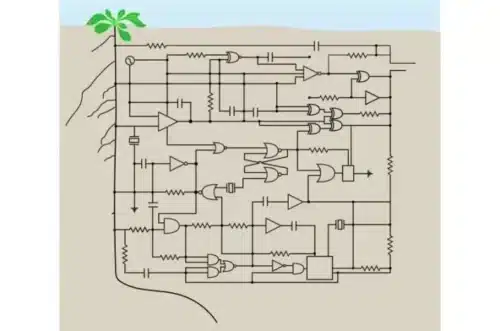Researchers invented genetic circuits to manipulate root structure to accomplish proper growth of plants even in changing weather conditions

Researchers at Stanford University are working on the creation of synthetic genetic circuits that helps researchers to grow different root designs for different circumstances to produce the most efficient crops. This manipulation of plant growth based on climate changes will help them to grow efficiently and effectively. The food crisis is the main problem faced worldwide due to floods, drought, and climate change. To overcome these hurdles the researchers trying to find ways to protect and adapt crops and plants to these climate changes.
“Our synthetic genetic circuits are going to allow us to build very specific root systems or very specific leaf structures to see what is optimal for the challenging environmental conditions that we know are coming,” Brophy said. “We’re making the engineering of plants much more precise.”
The shallow roots with numerous branches help absorb phosphorous while deep roots help absorb water and nitrogen. Hence, the manipulation of root structures of plants is done as per the requirement of plants to absorb protein or water. To gain control over plant behavior Brophy and her colleagues invented Synthetic DNA which acts as computer code with logic gates helping in the decision-making process. The number of branches in the root system is decided by these logic gates and does not change the structure of the entire plant. They are further researching manipulating the root structure of the sorghum plant, which can be refined into biofuel, to help absorb water and efficiently perform photosynthesis
“Climate change is altering the agricultural conditions in which we grow the plants that we rely on for food, fuels, fibers, and raw materials for medicines,” Brophy said. “If we’re not able to produce those plants at scale, we’re going to be facing a lot of problems. This work is to help ensure that we will have plant varieties that we can grow, even if the environmental conditions that we’re growing them in become less favorable.”
Click here for the published Research Paper







